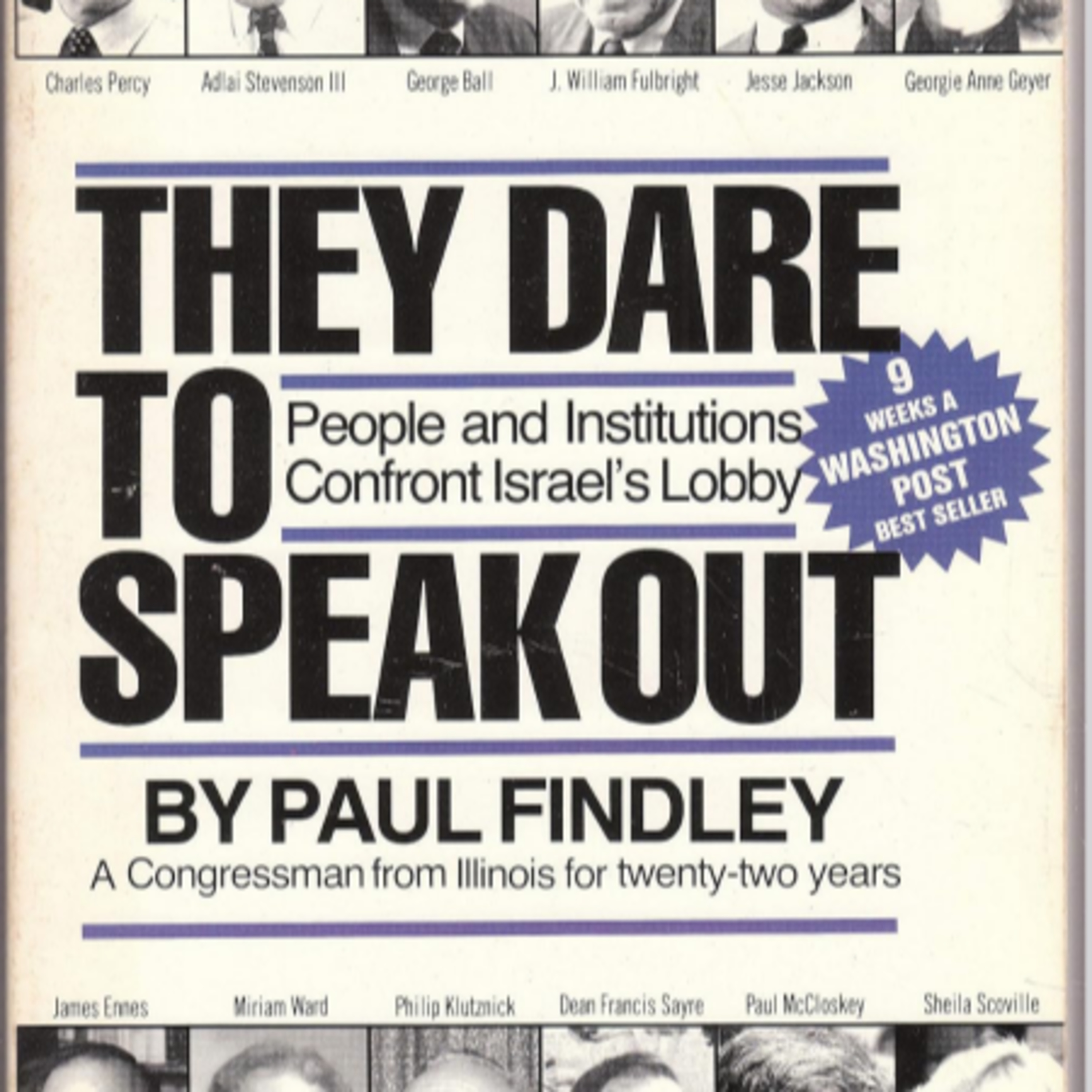They Dare to Speak Out: Confronting Israel's Lobby
- Author
- Mana Bond Limited
- Published
- Mon 02 Dec 2024
- Episode Link
- https://podcasters.spotify.com/pod/show/mana-bond-limited/episodes/They-Dare-to-Speak-Out-Confronting-Israels-Lobby-e2rpe1f
Timeline of Events
Early Events (Pre-Source Focus)
- 1948: Israel is established. President Truman recognizes the new state, receiving significant Jewish support in his subsequent election.
- 1954: Fred Waller, a State Department official, is punished for leaking classified information to Israel. This marks the only known instance of a US government employee facing repercussions for such actions.
1967:
- May: Egypt's President Nasser closes the Strait of Tiran, escalating tensions with Israel. The Israeli lobby pressures President Johnson to support Israel, sending an overwhelming number of telegrams and letters.
- June: The Six-Day War takes place. The US provides significant military support to Israel, including airlifting weapons and supplies.
1973:
- October: The Yom Kippur War breaks out. President Nixon orders an airlift of military equipment to Israel, which proves crucial to its war effort.
Late 1970s
- 1978:Senator Mathias votes in favor of selling F-15 fighter planes to Saudi Arabia, facing criticism from some Jewish constituents.
- Congressman Paul Findley travels to South Yemen to negotiate the release of American hostage Ed Franklin.
- Findley secures a declaration from PLO leader Yasser Arafat expressing willingness to accept an independent Palestinian state and recognize Israel.
- 1979:Congressman Findley faces criticism for his Middle East views and loses his bid for re-election.
- Congressman Walter Fauntroy faces backlash from the Israeli lobby for his contacts with the PLO and his amendment seeking increased aid to Egypt.
1980s
- 1980:A leak from a secret White House meeting jeopardizes a sensitive arms deal with Saudi Arabia. Ambassador John West's efforts to work out a compromise are undermined by the leak.
- 1981:Israel bombs Iraq's nuclear reactor.
- The sale of AWACS surveillance planes to Saudi Arabia triggers a major confrontation between the Israeli lobby and the Reagan administration. Congressman Rostenkowski faces pressure from the lobby and ultimately votes against the sale.
- Senator Mathias publishes an article criticizing ethnic lobbies, including the Israeli lobby, in US foreign policy. He faces significant backlash from the Jewish community in Maryland.
- 1982:Israel invades Lebanon. Congressman Findley criticizes the invasion, deepening the controversy surrounding his views on the Middle East.
- President Reagan presents a peace plan for the Middle East. Israel rejects the plan.
- The Israeli lobby pressures Iowa voters to reject Senator Roger Jepson's bid for re-election after he criticizes Israel's settlements policy.
- 1983:John Glenn modifies his stance on the Middle East, ruling out talks with the PLO and excusing his vote for F-15 sales to Saudi Arabia.
- 1984:Senator Percy faces a challenging re-election campaign, with the Israeli lobby heavily involved in supporting his opponent.
- Late 1980s:Jonathan Pollard, a US Navy analyst, is arrested for spying for Israel, revealing the extent of Israeli espionage activities in the US.
- Mordechai Vanunu, an Israeli nuclear technician, exposes details of Israel's nuclear program. He is subsequently abducted by Mossad and sentenced to prison in Israel.
Ongoing Issues:
- The Israeli lobby continues to exert significant influence on US Middle East policy.
- Debate continues over US aid to Israel, particularly in light of Israel's policies in the occupied territories.
- Israel's nuclear program remains a source of concern and controversy.
- American evangelists increasingly voice support for Israel, further complicating the dynamics of US-Israel relations.
